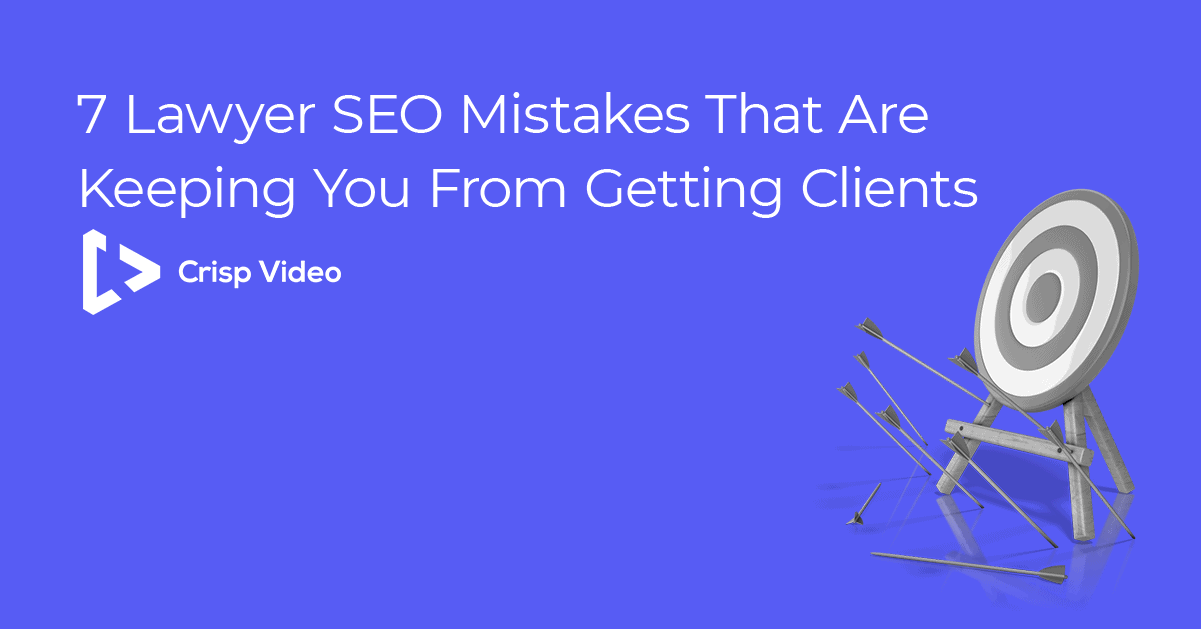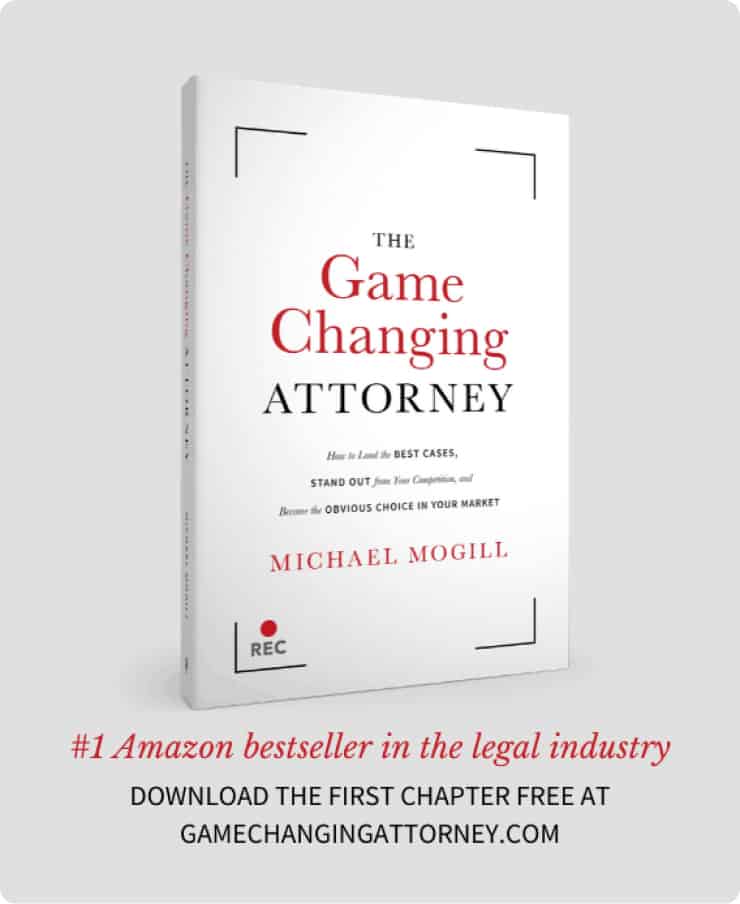This post was written by our friends at Rankings.io, the #1 SEO agency exclusively for lawyers.
Everywhere you look online, you’ll find articles and ebooks and webinars talking about SEO best practices for lawyers that you should follow to get results. Some of these lawyer SEO best practices can yield great results, and having the right systems in place is an important first step.
Many businesses want to focus on the positive, ensuring they’re following those best tips for success, but making sure that you’re avoiding common mistakes can be just as important as doing everything right. And unfortunately, there are a few common lawyer SEO mistakes that actually keep them from increasing their search traffic and landing new clients in one fell swoop.
In this post, we’re going to take a look at the 7 most common and most serious lawyer SEO mistakes that will prevent you from growing your client base and show you how to avoid them for best results.
1. Only Optimizing For One Keyword
At our agency, we do a lot of SEO work for a large number of attorneys and law firms, and this is one of the biggest SEO mistakes that some lawyers are making: they’re choosing a single keyword and going all in. Every page on their site is optimized for one key phrase, and that’s that.
This is a debilitating mistake that you want to avoid. Not only does it prevent you from potential ranking for more diverse keywords (giving you the chance to show up in additional relevant searches), it also results in keyword cannibalization.
Keyword cannibalization is the practice of trying to target the same keyword on multiple pages on your site. Because Google will find and display the best match in the SERPs, it could cause your other pages to not rank well at all. This can give you a big ding, which is why Yoast’s plugin will flag it for you.

Instead of optimizing for one keyword, make sure that you’re optimizing for different keywords on each page of your site. This goes for blog posts and FAQ sections, too; shift into long tail keywords if needed to in order to target a new keyword for every new URL you have.
2. Forgetting Specialized Keywords
When you do keyword research, you’ll immediately see that the more generic the keyword is, the higher the search volume typically becomes. That doesn’t mean those keywords are the right choice, and in fact the opposite is true.
The more specialized your keywords become, a few things happen.
The first is that you’re more likely to show up in relevant searches, because someone looking for “Denver attorney” might be looking for a lot of different things, but someone looking for a “Denver divorce lawyer” is looking for something specific.
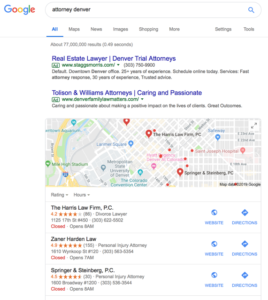
The second is that your competition is going to go way down, because you aren’t competing with all attorneys for space in the SERPs; just the ones in your specialty.
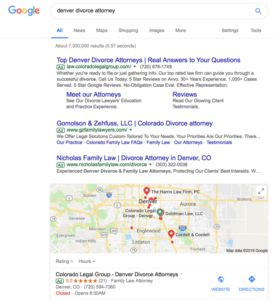
Specialized keywords can include:
- Location-based keywords, which people often use when researching legal services
- Keywords that focus on the specialty of your practice
- Keywords that highlight specialized services that you offer, like “estate planning” or “contract review”
3. Ignoring Video
Lawyers that understand the basic principles of SEO, may they think about all the backend coding and the meta descriptions and the alt image tags and link building among other things. They don’t always think “video,” and if that’s the case, they’re missing out.
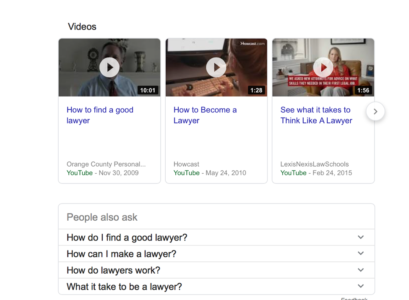
Video has strong SEO benefits. Not only does having video content allow you to rank for video searches, video on your site can also offer distinct SEO benefits. Both Google and users like to see diverse and relevant media on your site that offers value, and having an optimized-crawlable video on relevant pages can increase Google’s perception of the value you’re offering.
To see the best results possible with video, make sure you’re doing the following:
- Use .SRT files to add closed captions to your content. Not only will this keep users engaged and watching longer, it also essentially turns the audio into a text-based, crawlable transcript that’s search-friendly.
- Optimize your videos for the keywords of your choice. Place different keywords in your video’s title and its description. If you’re using YouTube to upload your video content, include keywords in the tags you’re choosing, too.
If you don’t want to invest in regular video campaigns, that’s ok; all you need is even just one or two solid video campaigns that represent your firm well and offer value to potential clients.
To get Crisp’s best guidance on defining your unique value proposition, communicating it through engaging video, and getting the most out of your brand video all in one comprehensive resource, check out The Game Changing Attorney. This is a book you’ll want to keep on your shelf to pull out every step of the way.
4. Adding Keywords to Your Google My Business Profile Name
So far, we’ve been all about adding diverse keywords everywhere you can. There’s actually an exception to this, and that’s going to be your Google My Business (GMB) profile name.
It’s easy to see how law firms make this mistake. Google runs on keywords, after all, but in order to keep businesses from accidentally (or purposely) spamming the system, it actually goes against their guidelines to include keywords in the profile name of your GMB account.
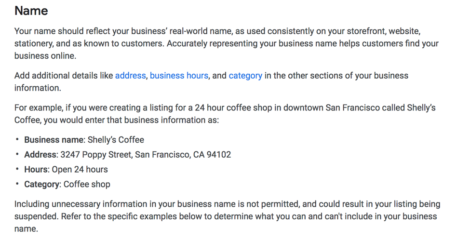
This doesn’t mean that you can’t use keywords in your profile at all, however; you still can. Instead of trying to pack it into the business name (which should quite literally just be the business’s name), optimize for local SEO by adding keywords to the business description or service descriptions of your profile. This doesn’t break regulations, so you won’t get penalized or suspended, and it helps you appear in the right searches.
5. Neglecting Schema Markup
Have you noticed that when you’re searched for something in Google, some of the search results look different than others? This is thanks to useful snippets of code called “schema markup” or “structured data” that allow you to create rich snippets of information that are machine-understandable. This means Google can display better, more information-rich results to users.
In the example below, the law firm uses sitemap schema to create clickable links to multiple different key pages. This gives users multiple points to enter the site, and if they see something that’s most relevant to them, it can increase the likelihood of a click.

Schema markup makes your firm more competitive in search results, but so many firms make the mistake of not using it because they don’t know how to implement it or think it unimportant. In reality, schema is easy to create– all you need is a schema generator like this one — and easy to install with the right tools. You can read more about this here.
6. Not Prioritizing Site Loading Speeds
A lot of law firms have beautiful, informative sites. That’s great news. Unfortunately, many of them fail to have sites that are properly optimized for fast loading speed, and this will directly impact your search results.
Page load time has been proven to be an important factor for Google when ranking web pages. People are now expecting sites to load within three seconds or less, and they’ll actually click away if it doesn’t load by then. This impatience goes for both mobile and desktop users, so you must prioritize a fast loading speed on both types of devices.
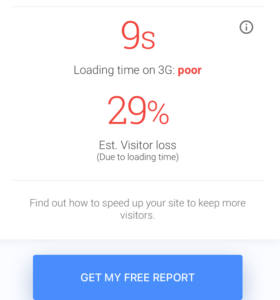
If you aren’t sure how your site is performing in terms of loading speed, take a few minutes to check it right now. Just enter your URL into Google’s free tools (desktop here and mobile here, and see where you’re at.
7. Not Investing In Local SEO
Having a strong site is great, and it will naturally be a crucial part of your SEO and marketing campaigns. Your website alone, however, isn’t enough, and you’re making an enormous and costly mistake if you’re relying exclusively on a site and not investing in local SEO.
If you aren’t paying enough attention to local search, I can guarantee you’ll lose clients to the ones who are. People are searching for “near me” and location-based keywords, and Google responds in kind with featured GMB profiles that are geographically close to the searcher and hitting all their keywords. In fact, Google uses relevance, distance, and prominence as key factors in ranking GMB profiles. And if you have a fully fleshed-out GMB profile complete with enthusiastic client reviews, you’ll be the one getting the clicks instead of your competition.
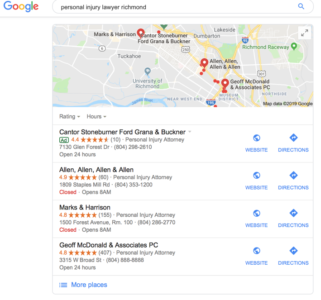
Treat your GMB profile the same way you would treat LinkedIn if you were desperately trying to find a new job. Have it updated with as much relevant information as possible (including pictures and videos!), and showcase any services or accommodations you can offer.
Conclusion
While every now and then we see a real doozy, the reality is that most of the time we’re seeing the same common, simple lawyer SEO mistakes being made over and over again by a number of firms coming to us. Even practices with strong websites and developed online presences are falling into these frequent pitfalls, and it’s negatively affecting their SEO potential. By avoiding these mistakes, you’ll be able to really see the great effects from all those best practices you’ve carefully implemented with nothing standing in your way.
